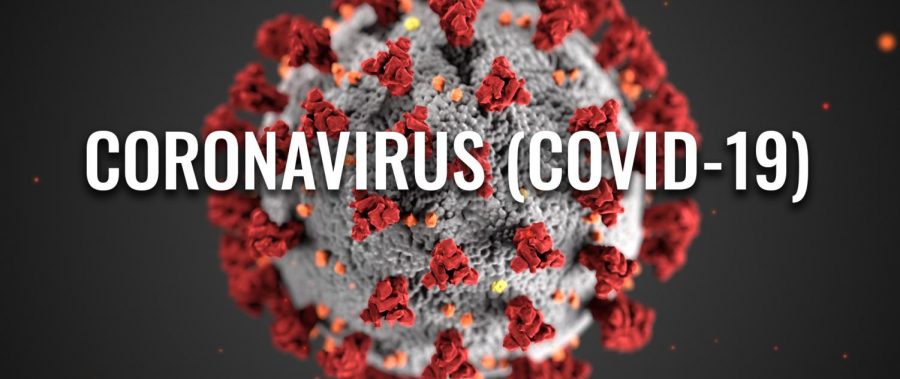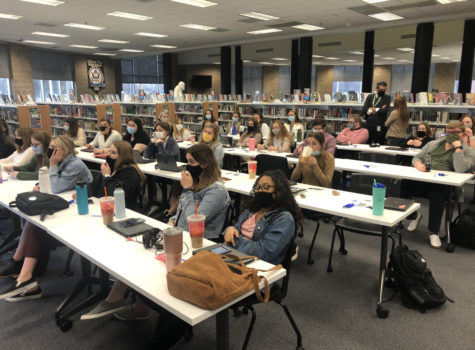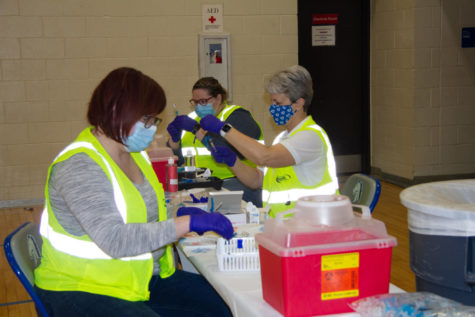Call it by its name
Referring to COVID-19 as ‘China Virus’ harms Asian Americans
Photo courtesy of Furman University
COVID-19 has developed a multitude of names referencing China, putting individuals in America at risk.
April 2, 2020
During today’s global pandemic, news outlets have run to opportunities on reporting the health crisis. In doing so, press conferences are being held on local and federal levels. Unfortunately, COVID-19 has developed many names ranging from just corona to “China virus” or even “Kung flu”. Unfortunately, names referring back to geographic or regional places are detrimental for individuals.
Looking into history, infectious outbreaks were given names after their geographical places. Take, for example, Spanish flu, Zika, Ebola and West Nile virus. While the concept of developing these names is not inherently wrong; these practices only create problems. Associating viral outbreaks to ethnic groups is misleading and stigmatizes large groups, causing harm to others.
Looking at ‘Spanish flu’, it is common practice to refer to the H1N1 virus that swept the world from 1918-1920 by this name. While the name makes the deadly influenza outbreak sound like it came from Spain, the first confirmed reported case was actually noted in Kansas as displayed by Evan Andrews, an author for History. Although this historical pandemic has passed, the name Spanish flu has stuck, leading to assumptions over the misleading name.
Now viewing COVID-19, addressing the health crisis as ‘China virus’ or even ‘Kung flu’ — especially by our President, political figures and commentators — puts an incredibly negative stigma on Asian Americans. This only invites racist comments and instigates an increase in hate crimes. For many other Americans, rather than acknowledging efforts made by health professionals or even regulations for social distancing, it is easier to put blame on a country or ethnicity. Sadly, Asian Americans fall under threats of hate crimes, comments made while walking outside or doing daily tasks to survive, such as commuting for groceries. As detailed by a senior investigative reporter for ABC News, Josh Margolin displays “The FBI assesses hate crime incidents against Asian Americans likely will surge across the United States, due to the spread of coronavirus disease … endangering Asian American communities,”. This statement was developed after the assumption many Americans would associate COVID-19 with Asian Americans and China.
While this took place, many individuals denied harm of using the term “China virus” — or other terms that make references to China — defending that the nature of the language only emulates the origination of the pandemic. This only furthers racial stigmas inviting xenophobia and racism in many forms. Unfortunately, this quickly intertwines with political beliefs and stances, making it difficult to discuss the issue at hand. As Minnie Li, a sociology lecturer at the Education University of Hong Kong, states in The Atlantic “To associate a disease with a group of people and believe that banishing, quarantining, and segregating members of this group would be a sound protective measure will only distract us from the real threat,”.
Individuals who must treat others in a crude, derogatory fashion only harm society as a whole, especially when our society wants to encompass the image of a melting pot of different cultures. In order to have this sense of nationality, igniting a fire of hate and fear toward groups does nothing, especially when the usage of misleading terms comes into play.
Today, using names such as “China virus” or similar references to describe COVID-19 puts a dangerous stigma on Asian Americans, especially because the negative connotation involved allows for opinions inviting racism and xenophobia. This language, while typically used to put blame on Chinese people, plays a huge role into mindsets people uphold on the ever-changing pandemic. Rather than using terms carrying such negative connotations, call COVID-19 by its name.














